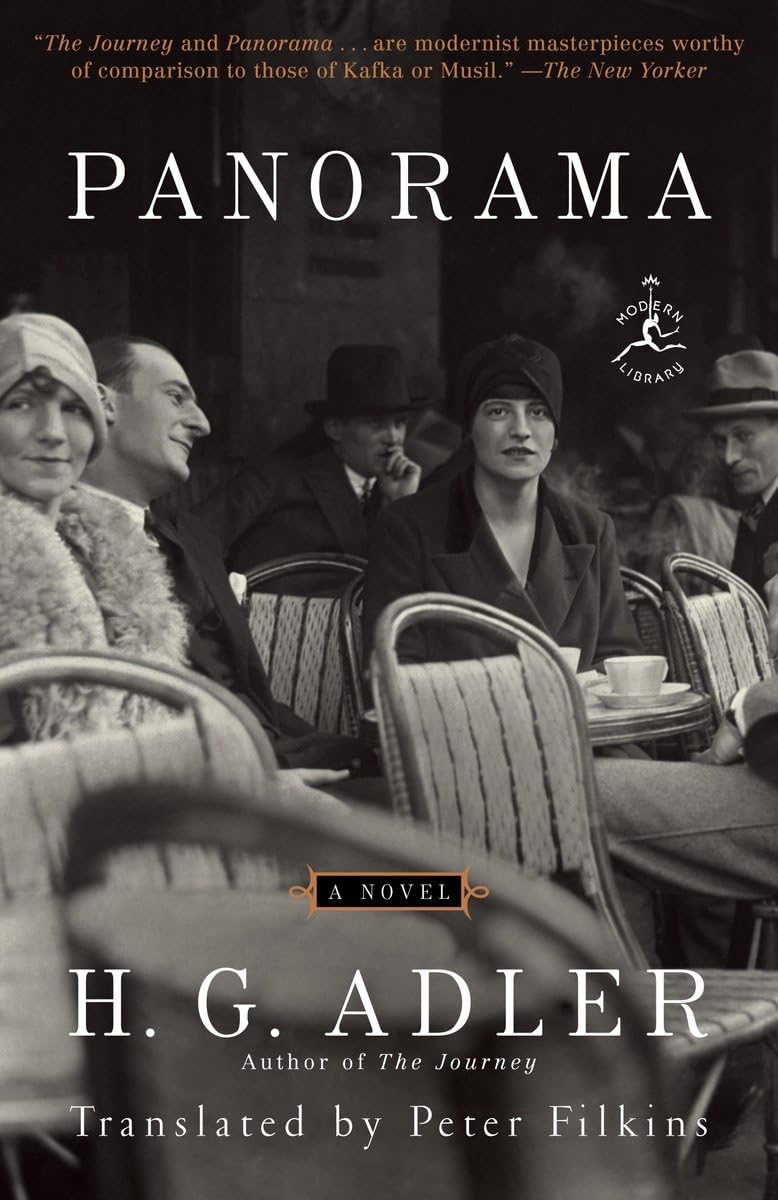

Panorama
D**E
A newly discovered Modernist novel.
I was alerted to this novel - and to others by this author - in a review of a new biography of its author - H.G. Adler, father of Professor Jeremy Adler - by Peter Filkins, who translated this and The Journey, and helped get some degree of recognition for Adler's fiction which he failed dismally to receive in Germany.Adler was a Prague-born German speaker who survived the Holocaust, going on to become known for his pioneering sociological work, and in particular, his thousand-page study, from his own notes made at the time and secreted, of the Theresienstadt camp, and for his disputes over the years about the Holocaust. He was prolific in his writing, but far more prolific than was realized, writing at least six substantial novels, which he had great difficulty in getting published in Germany - where accounts by the victors were more welcomed than those by the victims. We now get some idea of what a loss this has been to German literature.Adler's fiction has now been compared with the Modernist masters such as Kafka, Musil, Broch et al., an with good reason. 'Panorama' is masterful in its handling of length and Modernist technique, its use of the commercial panorama the central character Josef is taken as a child by his grandmother, as a subtly-woven motif through a succession of discrete vignettes, building a picture of Josef's life in post-First War Prague up to the Holocaust and beyond, in voluntary exile in England (Cornwall then London).The sinuous, syntactically complex sentence structure adds to the overall structure, comparable perhaps to Broch's 'Death Of Virgil', each vignette ending with Josef falling asleep - a unifying motif which builds unobtrusively to the final vignette in which, after falling asleep in the park grounds of derelict Launceston Castle, Josef wakens to his destiny in coming to terms with his experiences, not just of the brutality of camp life, but to its existential dimension and moral burden: of observation, meditation; of the obligation just to 'be'.This is a highly impressive body of work, which I intend to go on exploring with the other titles so far available: The Journey, and The Wall - and, if there is any justice, the eventual translations of Adler's other, still-unknown works.
A**A
A Must Read!
I haven't read such a thought-provoking book in years. Written in stream of consciousness, the commas and periods seem to fall off the page. I felt as if I was running a race. The protagonist has his own philosophical positions, but by having discussions with other characters, one experiences every side of the debate. Some of the prose was like struggling with quick sand, but by rereading and perseverance, I continued. I plan to read The Journey and The Wall, but I need a little rest with something light hearted first.
M**Y
Rewarding but no easy read
As this novel leads up to episodes in the Shoah drawn from the author's experience some of it's strong meat. By contrast, earlier sections are sometimes charming and humorous. Scoring this book seems impertinent but 4 stars because it made me think. Launceston is always going to remind me of Josef's sojourn, learning to find a way after unspeakable horrors.
S**N
Good read
Thought provoking and sometimes perplexing.
Trustpilot
1 day ago
1 month ago